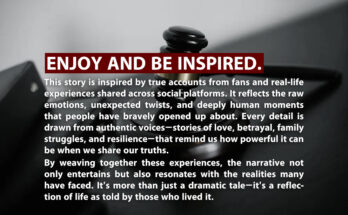Growing up, my grandmother never showed me warmth. She favored my cousins, ignored my birthdays, and once told me I was “too much like my mother”—as if that were a flaw. I spent years trying to earn her affection, but it never came. Now, she’s elderly and needs daily care. My family assumed I’d step in. “You’re the most responsible,” they said. But what they really meant was, “We don’t want to do it.” I said no. Not out of spite, but because I refuse to be the default caregiver just because I’m the one who never complains.
The backlash was immediate. My aunt called me heartless. My cousins, who were once her golden children, suddenly vanished when real responsibility appeared. I was told I was letting the family down. But where were they when I needed support? When I was struggling through school, working two jobs, and grieving alone after my mom passed? No one offered help then. Now they expect me to drop everything for a woman who never once made me feel loved. I won’t do it.
I offered to help find professional care, even suggested pooling resources to hire a nurse. But they refused. “Family takes care of family,” they said. But that only seems to apply when it’s convenient for them. I’m not a backup plan. I’m not the family’s emotional sponge. I’ve built a life with boundaries, and I won’t dismantle it to fix a dynamic that’s always been broken. Love isn’t owed—it’s earned. And she never tried.
I’ve been called selfish, cold, even ungrateful. But I’ve learned that guilt is a tool people use when they don’t want to carry their share. I’ve spent years healing from the emotional neglect I endured. I won’t reopen those wounds just to make others feel better about their own inaction. I’m not abandoning her—I’m choosing not to abandon myself. That distinction matters more than anyone in my family seems willing to admit.
Some nights, I still feel the weight of their judgment. But I remind myself that boundaries are not cruelty. They’re clarity. I can care about someone’s wellbeing without sacrificing my own. I hope my grandmother gets the help she needs. I truly do. But I won’t be the one to provide it—not because I don’t care, but because I finally care enough about myself to say no.
This decision wasn’t easy, but it was necessary. I’m not the family’s fallback. I’m not the one who silently absorbs the consequences of everyone else’s choices. I’m a person with limits, and for once, I’m honoring them. That’s not selfish—it’s survival.


